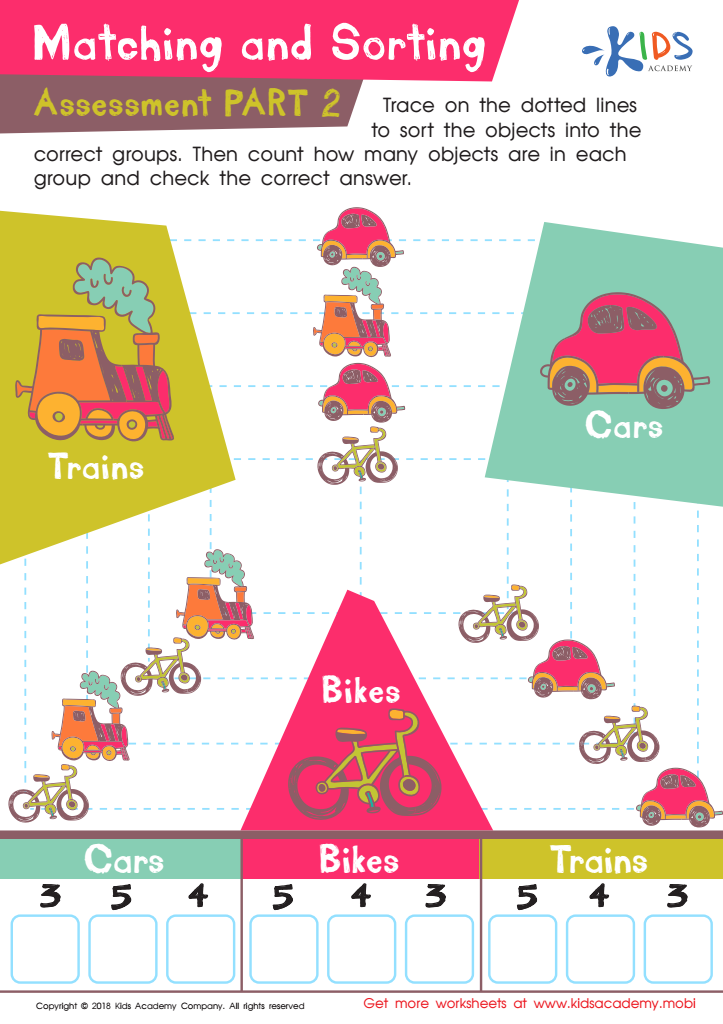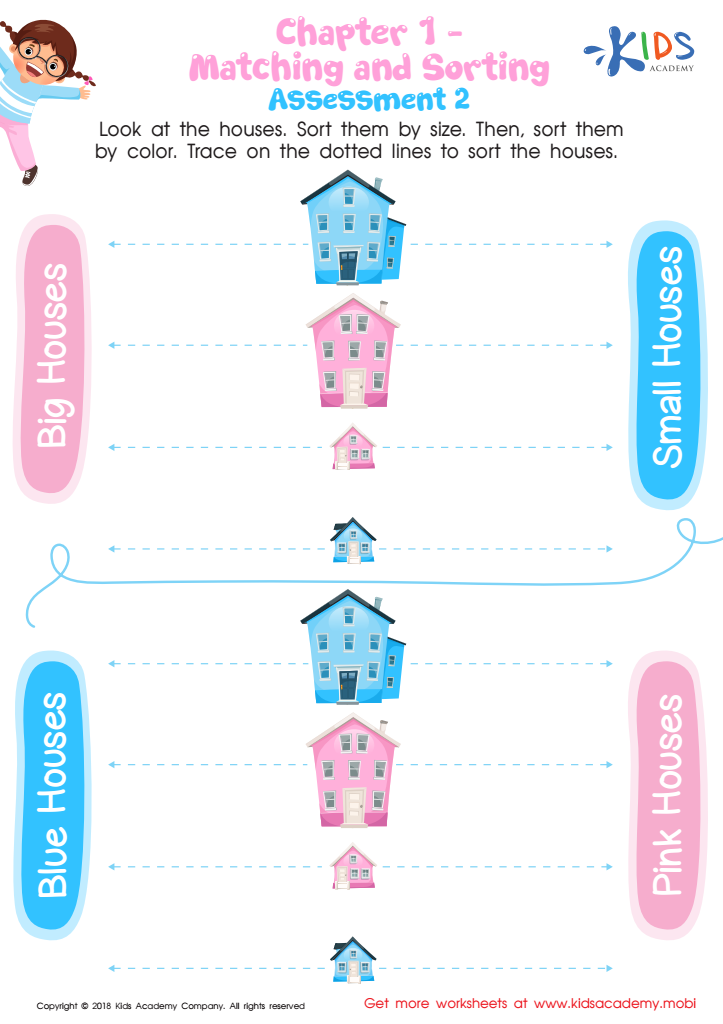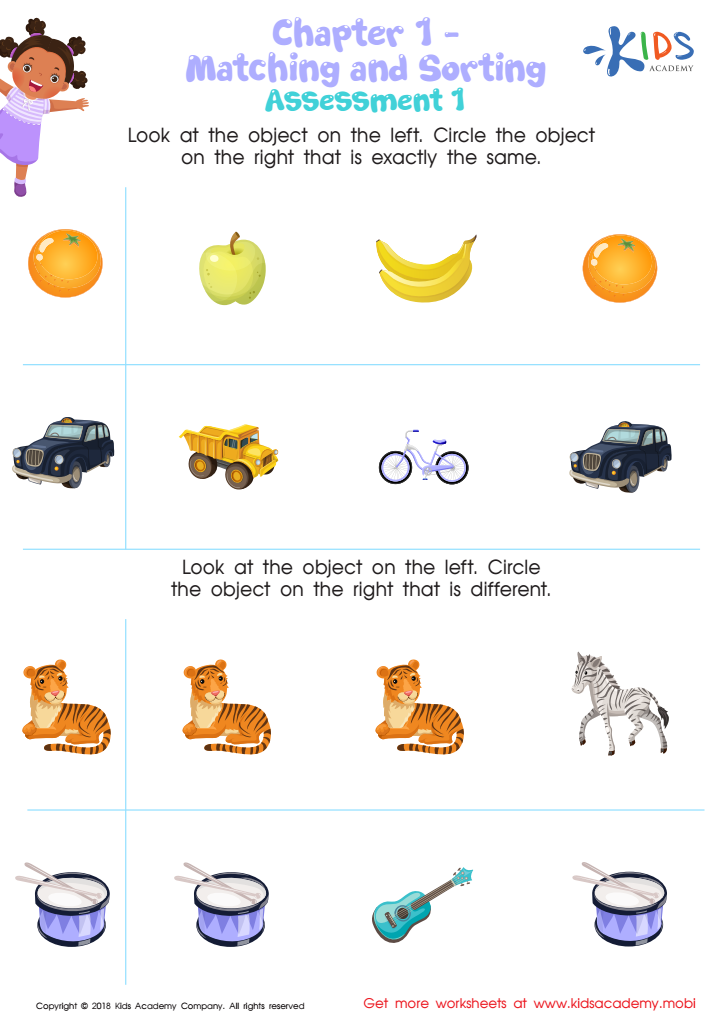Comparing Fractions Sorting Worksheets for Ages 3-6
3 filtered results
-
From - To
Explore our engaging Comparing Fractions Sorting Worksheets designed for kids ages 3-6. These interactive worksheets make learning fractions fun and accessible, helping young learners understand and compare different fractions through hands-on sorting activities. Whether it's differentiating halves, thirds, and quarters or grasping the concept of equal parts, these worksheets provide a solid foundation in basic math skills. Perfect for homeschool or classroom use, our worksheets are tailored to build confidence in early math learning and foster a love for numbers. Elevate your child's math journey with our expertly crafted fraction sorting exercises today!


Matching and Sorting for Kindergarten: Assessment 2 Worksheet


Matching and Sorting for Preschool: Assessment 2 Worksheet


Matching and Sorting for Preschool: Assessment 1 Worksheet
Comparing fractions and sorting are foundational skills that play a crucial role in early childhood mathematical development, even for children as young as 3 to 6 years old. At this age, children might not fully grasp the abstract concept of fractions, but introducing them to comparing and sorting helps build a strong groundwork for future learning.
Firstly, comparing fractions and sorting exercises hone critical thinking and problem-solving skills. As children evaluate which fractions are larger or smaller, they engage in reasoning processes that are pivotal for cognitive development.
Secondly, these activities demonstrate the practical applicability of math in everyday life, making math relatable. For example, when children compare halves and quarters of snacks or toys, they start to understand fractions in a tangible manner.
Moreover, sorting activities improve children's ability to categorize, organize, and differentiate between objects or numbers based on attributes. This skill is not only important in math but also in understanding patterns, sequences, and making logical decisions across various disciplines.
Finally, engaging in comparing and sorting activities fosters a positive relationship with math by making it a fun and interactive endeavor. When children enjoy learning through play, they develop a more profound and sustained interest in the subject, thus laying the foundation for advanced mathematical concepts.
Ultimately, parents and teachers should care about these activities as they nurture foundational skills that support academic success and practical problem-solving throughout life.
 Assign to My Students
Assign to My Students
















